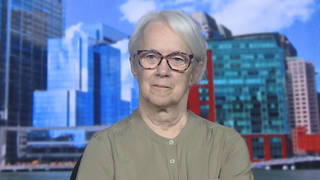
Topics
Congressional leaders on Tuesday launched hearings on whether the FBI and CIA overlooked signals that warned of September 11th. The joint House-Senate hearings took place under high-security, in a soundproof room on the top floor of the capitol building.
The hearings follow revelations that the CIA told the FBI 18 months ago that one of the 9-11 hijackers was attending a meeting of suspected terrorists in Kuala Lumpur, Malaysia, and that he had a type of visa which should have drawn suspicion.
The disclosure contradicts repeated assertions by senior FBI officials that bureau headquarters had no information about Khalid Almihdhar until 3 weeks before the September attack.
As recently as yesterday afternoon, FBI officials said the CIA’s failure to share information had possibly resulted in a missed opportunity to unravel the Sept. 11 plot.
President Bush said yesterday he was concerned that the congressional inquiry could jeopardize the so-called war against terrorism. But chairman of the Senate Intelligence Committee Bob Graham, disagreed. He called the first day’s session “extremely constructive”. He said the inquiry will focus on establishing a timeline of what was known before September 11th, examining the so-called strengths and weaknesses of the U.S. intelligence system, and suggesting likely reforms.
Meanwhile, Attorney General John Ashcroft has already declared some reforms of his own. Last week he announced a broad loosening of restrictions on the FBI’s ability to conduct domestic surveillance, particularly on political and religious organizations. Under the old rules, agents had to show they had probable cause or information from an informer that crimes were being committed to begin counterterrorism investigations. Now they will be able to monitor Internet sites, libraries and religious institutions without first having any evidence of potential criminal activity.
The restrictions were imposed on the FBI in the 1970s after revelations that it had run a widespread domestic surveillance and sabatoge program by the name of COINTELPRO. The name stands for “Counterintelligence Program,” but the targets were not enemy spies but rather “radical” political activists inside the US. These included the Black Panthers, Rev. Dr. Martin Luther King, Jr, and antiwar activists.
Guests:
- David Kairys, professor of constitutional law, Temple University. Kairys is a nationally renowned constitutional lawyer. He had been in practice in Philadelphia with the firm of Kairys and Rudovsky since 1971 and has been Philadelphia counsel for the National Emergency Civil Liberties Committee. He edited the 1998 edition of ??The Politics of Law (3d ed., Basic Books), and wrote ??With Liberty and Justice for Some (New Press, 1993).
- Ed McGowan, author of the ??Camden 28.
Music:
- DN! Mix: “Know Your Rights” Peter Coyote, Prison Radio Project (www.prisionradio.org / www.NLG.org) Mixed over Tell The Truth–Phil Upchurch, Tell The Truth (Evidence).











Media Options